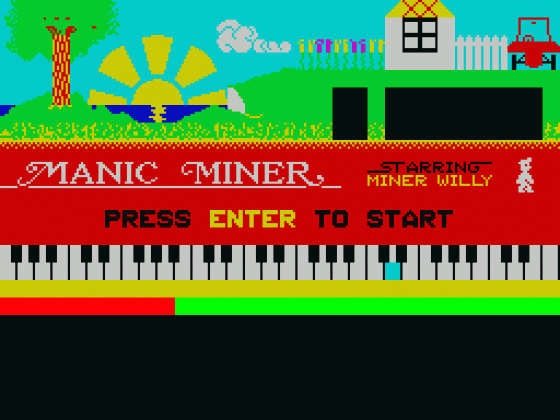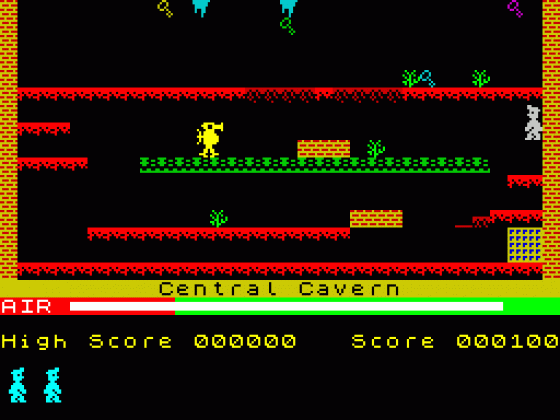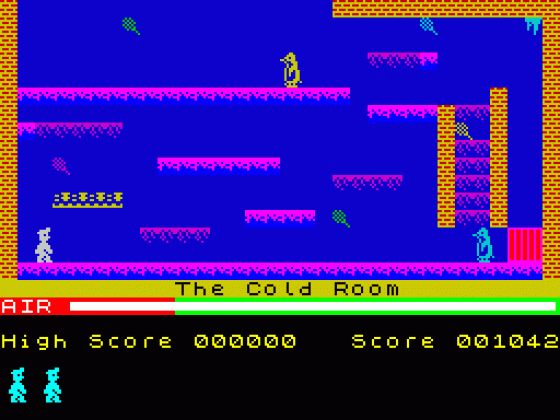Other Reviews Of Manic Miner For The Spectrum 48K
Manic Miner (Bug-Byte)
A review by N.B. (Home Computing Weekly)
Manic Miner (Bug-Byte)
A review by Nick Pearce (ZX Computing)
Manic Miner (Bug-Byte)
A review by Bruce Boughton (ZX Computing)
Manic Miner (Bug Byte)
A review


 1st January 1984
1st January 1984
















